2024 Awardees
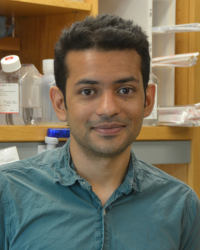
Dhananjay Bambah-Mukku, Ph.D.
University of California, San Diego
Project Title: The Multisensory Ontogeny of Social Behavior
Grant ID: DP2-HD118871
Dr. Dhananjay Bambah-Mukku is an Assistant Professor in the Department of Psychology at the University of California, San Diego. He received PhD training with Cristina Alberini at Mount Sinai and NYU and was a postdoctoral fellow in Catherine Dulac's lab at Harvard. His lab uses molecular, genetic and systems neuroscience tools in mice to study natural social behaviors such as mating, aggression and parenting. The Bambah-Mukku lab is particularly interested in how neural circuits are modulated by the sex, age and physiological state of the animal. A second line of research focuses on mechanisms of unique and extreme physiology and behavior in the Naked Mole Rat. The lab has been supported by an NICHD K99/R00 award, a Kavli Institute of Brain and Mind Innovative Research Grant and a Whitehall Foundation Fellowship.
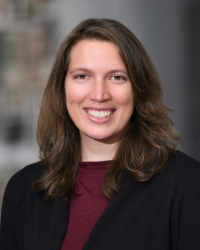
Blair W. Benham-Pyle, Ph.D.
Baylor College of Medicine
Project Title: Uncovering Cellular and Molecular Adaptations For Whole-Organism Rejuvenation
Grant ID: DP2-AG093210
Dr. Blair Benham-Pyle is an Assistant Professor of Molecular and Cellular Biology at Baylor College of Medicine, with appointments in the Cell and Gene Therapy Center, Stem Cell and Regenerative Medicine Center, and Dan L. Duncan Comprehensive Cancer Research Center. Prior to joining the faculty at Baylor College of Medicine, Dr. Benham-Pyle received a joint B.S./M.S. in Biochemistry and Biophysics from Yale University and a PhD in Cancer Biology from Stanford University. She then moved to the Stowers Institute for Medical Research, where she completed her postdoctoral work with Alejandro Sánchez Alvarado studying mechanisms by which post-mitotic cells regulate planarian regeneration, scaling, and behavior. Highlights from her postdoctoral work include the first molecular dissection of asexual reproduction behavior in planaria, a single cell atlas of planarian regeneration that identified transient regeneration-activated cell states (TRACS), and a spatial atlas of planarian tissue that identified candidate stem cell microenvironments. Dr. Benham-Pyle’s group at Baylor College of Medicine now leverages these discoveries and the remarkable biology of planarian flatworms to uncover conserved mechanisms underlying extreme regenerative capacity and resistance to cancer and aging.
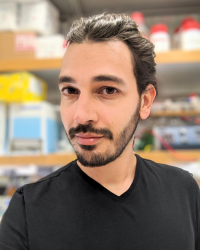
Steven Boeynaems, Ph.D.
Baylor College of Medicine; Neurological Research Institute, Texas Children's Hospital
Project Title: Uncovering the Role of Extracellular Condensates as Triggers of Neuroinflammation
Grant ID: DP2-NS142714
Steven Boeynaems performed his B.Sc. and M.Sc. studies in Bioengineering before receiving his Ph.D. in Biomedical Sciences in 2017 at KU Leuven and the Flemish Institute for Biotechnology (VIB) in Belgium. He joined Stanford University as an EMBO Long-Term Fellow for his postdoctoral work. In 2022, Steven became an Assistant Professor at the Department of Molecular and Human Genetics at Baylor College of Medicine and Investigator at the Jan and Dan Duncan Neurological Research Institute at the Texas Childrens’ Hospital in Houston. He is a CPRIT scholar in cancer research, and a member of the Baylor Therapeutic Innovation Center, the Dan L Duncan Comprehensive Cancer Center, and the Center for Alzheimer’s and Neurodegenerative Disease. Work in the Boeynaems lab is focused on understanding how biomolecular condensates encode (dys)function in biology and human disease, with a focus on their involvement in stress responses and tolerance, aging and quiescence.
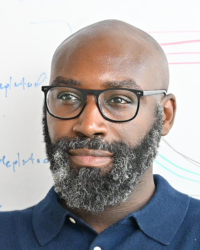
John F. Brooks II, Ph.D.
Princeton University
Project Title: The Circadian Clock Coordinates Animal and Microbial Metabolism
Grant ID: DP2-DK143367
John F. Brooks II is an Assistant Professor in the department of Molecular Biology at Princeton University. His laboratory seeks to interpret the molecular conversation that occurs between animals and microorganisms across both time and space. John received his B.S. in Microbiology from the University of Michigan, Ann Arbor and his Ph.D. in Microbiology from Northwestern University in the laboratory of Dr. Mark Mandel. He then completed a postdoctoral fellowship at the University of Texas, Southwestern in the laboratory of Dr. Lora Hooper. In addition to the NIH Director’s New Innovator Award, Dr. Brooks is a recipient of a HHMI Hanna H. Gray Fellowship, a Searle Scholar Award, a Pew Biomedical Scholar Award, and a Hypothesis Fund Award.
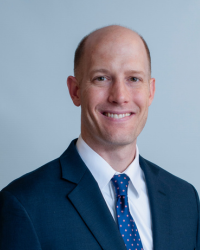
James D Byrne, M.D., Ph.D.
University of Iowa
Project Title: Novel Extremophile-Inspired Radioprotectants
Grant ID: DP2-CA301081
James Byrne is an Assistant Professor and physician-scientist in the Department of Radiation Oncology at the University of Iowa. Dr. Byrne received his M.D. and Ph.D. at the University of North Carolina at Chapel Hill, working with Drs. Joseph DeSimone and Jen Jen Yeh to develop an implantable iontophoretic device to treat locally advanced pancreatic cancer. He completed his residency in radiation oncology at the Harvard Radiation Oncology Program and his post-doctoral training as the Sakonnet fellow at the Kock Institute for Integrative Cancer Research at the Massachusetts Institute of Technology with Drs. Robert Langer and Giovanni Traverso focused on the development of new technologies including devices for drug delivery, radiation protection, and gas therapeutics. At the UI, the Byrne lab develop novel RNA therapies to protect normal cells from the damaging effect of radiation therapy, while still allowing effective treatment of the tumor. He has also received generous support from the American Cancer Society, US Department of Defense, Prostate Cancer Foundation, V Foundation, and is the recipient of an NIH/NCI K08 Mentored Clinical Scientist Research Career Development Award.
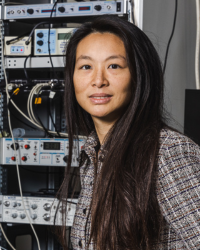
Xing Chen, Ph.D.
University of Pittsburgh
Project Title: Understanding the Principles of Phosphene Fusion Via High-Channel-Count Visual Prostheses in Monkeys
Grant ID: DP2-EY037405
Xing Chen is an Assistant Professor at the University of Pittsburgh Department of Ophthalmology, specializing in brain-computer interfaces, visual neuroscience and blindness, via chronic recording and microstimulation in non-human primates. She obtained her Bachelors in Neuroscience at the University of Southern California on a Trustee Scholarship in 2008, before obtaining her PhD in Neuroscience at Newcastle University in 2014 with Alexander Thiele. She carried out her postdoctoral work with Pieter Roelfsema at the Netherlands Institute for Neuroscience, becoming Senior Researcher in 2020, and created customized cranial implants using 3D modeling and printing techniques, improving implant stability and animal welfare. Together with Blackrock Neurotech, she developed a 1024-channel prosthesis for recording and electrical stimulation of the cortex, establishing proof-of-concept for the generation of artificial vision in the blind, winning the NIN Brain Award for Scientific Excellence in 2021 and the Pitt School of Medicine Senior Vice Chancellor’s Research Seminar Award in 2023. In 2019, she co-founded a neurotech startup, Phosphoenix, which develops clinical devices for neuromodulation and functional restoration.

Kelsey H. Collins, Ph.D.
University of California, San Francisco
Project Title: Unraveling Fundamental Mechanisms of Interorgan Crosstalk in Osteoarthritis
Grant ID: DP2-AG093209
Dr. Kelsey Collins is an Assistant Professor in the Departments of Orthopaedic Surgery and Anatomy at the University of California, San Francisco. She received her B.S. in Exercise Biology at the University of California, Davis, and her Ph.D. in Biomedical Engineering at the University of Calgary in Alberta, Canada with Dr. Walter Herzog on the role of diet-induced obesity on osteoarthritis and musculoskeletal damage. She then pursued her Postdoctoral Studies in the Department of Orthopaedic Surgery at Washington University in St. Louis with Dr. Farshid Guilak, where she created a tissue engineering and regenerative medicine platform to determine the signaling mechanisms between adipose and musculoskeletal tissues in the context of osteoarthritis. Dr. Collins established her lab at UCSF in 2023, and her group is focused on decoding fundamental mechanisms of interorgan communication between fat and musculoskeletal tissues that contribute to osteoarthritis susceptibility and pain. Her goal is to generate a new class of regenerative medicine-based therapies with applications to other diseases of aging and obesity. Her work has been acknowledged and supported by multiple national and international awards, including an NIH K99/R00 Pathway to Independence Award from NIAMS, the Arthritis National Research Foundation, and the Lipedema Foundation.
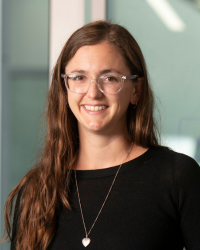
Stacy M. Copp, Ph.D.
University of California, Irvine
Project Title: Deep-Tissue Targeted Molecular Imaging with a Palette of NIR-II Emissive DNA-Stabilized Nanoclusters
Grant ID: DP2-EB037187
Stacy Copp is an Assistant Professor of Materials Science and Engineering at the University of California, Irvine, with courtesy appointments in the Departments of Chemistry, Physics and Astronomy, and Chemical and Biomolecular Engineering. Copp received her B.S. in Physics and Mathematics from the University of Arizona and her Ph.D. in Physics from UC Santa Barbara. She was then a Hoffman Distinguished Postdoctoral Fellow at Los Alamos National Laboratory, before joining UC Irvine in 2019. At UC Irvine, she leads the Molecular Nanomaterials Lab, whose mission is to harness DNA and synthetic polymers as programmable templates for nanoscale materials, with an eye towards addressing challenges in biomedical imaging, photonics, and energy efficiency.
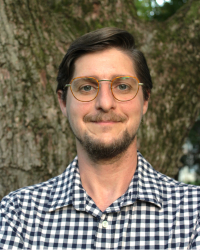
Santiago Cuesta, Ph.D.
Rutgers, The State University of New Jersey
Project Title: Multidisciplinary Characterization of the Gut-Brain Axis in Addiction
Grant ID: DP2-AT013279
Santiago Cuesta is an Assistant Professor in the Department of Cell Biology and Neuroscience at Rutgers, the State University of New Jersey. Dr. Cuesta earned his Ph.D. in Biological Sciences from Universidad Nacional de Rosario, Argentina, under the supervision of Dr. Alejandra Pacchioni. Following his Ph.D., he completed postdoctoral fellowships in Dr. Cecilia Flores' lab at McGill University, Canada, and in Dr. Vanessa Sperandio's lab at UT Southwestern Medical Center/University of Wisconsin-Madison. Throughout his career, Dr. Cuesta has been supported by numerous pre- and postdoctoral fellowships and honors, including his recent appointment as the Duncan and Nancy MacMillan Faculty Development Chair in Life Sciences. His lab at Rutgers University uses a multidisciplinary approach that integrates behavioral neuroscience and microbiology to investigate how the gut microbiome influences the development of psychiatric conditions, with a focus on addiction and substance use disorders.
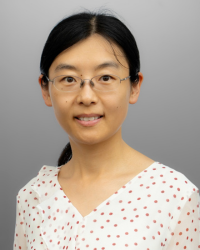
Xiao Fan, Ph.D.
University of Florida
Project Title: Exploration of DNA Functionality Using Language Models
Grant ID: DP2-LM014811
Funded by the National Library of Medicine
Xiao Fan is an Assistant Professor at the University of Florida. Born in China, Dr. Fan received her Ph.D. in Bioinformatics from the University of Alberta, Canada, and her postdoctoral training in computational genomics from Columbia University. She received the K99/R00 Pathway to Independence award from NHGRI to work on interpreting the pathogenicity of coding variants. Upon starting her lab, she expanded the research to study the contribution of non-coding variants to human diseases using DNA language models. The Fan Lab aims to uncover the genetic and epigenetic mechanisms underlying disease development.
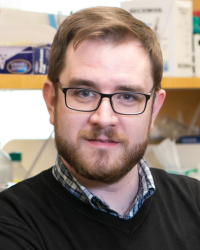
William A. Flavahan, Ph.D.
University of Massachusetts Chan Medical School
Project Title: Expanding the Capabilities of Third-Generation Sequencing for Multi-Dimensional Genome and Transcriptome Analysis.
Grant ID: DP2-GM159179
Will Flavahan is an Assistant Professor in the Department of Molecular, Cell and Cancer Biology at the University of Massachusetts Chan Medical School. He received his B.S. in Biomedical Engineering from Case Western Reserve University. He obtained his Ph.D. in the lab of Dr. Jeremy Rich at the Cleveland Clinic and Case Western, studying glucose uptake in glioblastoma. He completed postdoctoral training in the lab of Dr. Bradley Bernstein at Massachusetts General Hospital and the Broad Institute, studying how alterations in 3D genome topology could lead to oncogene activation in cancer. His own lab now seeks to further understand how alterations in the epigenome, including disrupted genome topology, can give rise to disease, and to develop technologies that allow more in-depth exploration of the epigenome.
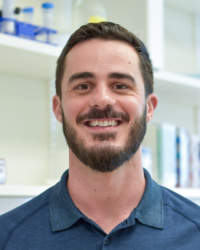
Javier Garcia-Bermudez, Ph.D.
University of Texas Southwestern Medical Center
Project Title: High-Resolution Approaches to Dissect the Role of Subcellular Redox Circuits In Vivo
Grant ID: DP2-GM159178
Javier (Javi) Garcia-Bermudez is an Assistant Professor at UT Southwestern. He grew up in Spain and earned his B.Sc and Ph.D. from the Universidad Autónoma of Madrid, focusing on the regulation of mitochondrial respiration in highly proliferative cells. In 2016, Javi joined the laboratory of Kıvanç Birsoy at Rockefeller University as a postdoctoral fellow, where he used forward genetics and metabolomics to reveal key metabolic dependencies of cancers under low oxygen and oxidative stress conditions. His lab now uses genetic approaches, both in vitro and in vivo, to study cancer as a model for identifying cellular regulators of lipid metabolism and the antioxidant response. Javi has been awarded a K99/R00 Pathway to Independence grant from the National Cancer Institute, a CPRIT Recruitment Faculty Member Award, and is an American Cancer Society (ACS) Research Scholar.
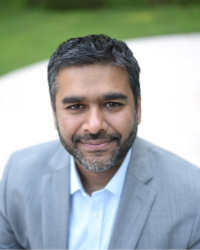
Salil Garg, M.D., Ph.D.
Yale University
Project Title: Genomic Encoding of Heterogeneity
Grant ID: DP2-HG014283
Salil Garg is an Assistant Professor in the Departments of Laboratory Medicine and Pathology at Yale University. Dr. Garg trained in the combined MD-PhD program at Harvard Medical School, followed by postdoctoral training in RNA biology at MIT. The Garg laboratory (https://www.garglab.org/) studies non-genetic heterogeneity, or how cell systems with a singular genotype can form diverse cell states and functions. The lab employs highly interdisciplinary science, weaving together genomics, molecular biology, cell biology, systems biology, and machine learning techniques to understand how cell-to-cell differences arise under apparently homogeneous conditions. The lab is currently studying stem cells and cancer but maintains a broad interest in many areas of mammalian physiology.
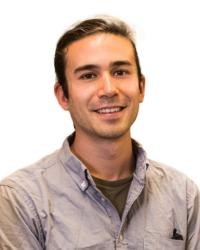
Adam K. Glaser, Ph.D.
Allen Institute for Neural Dynamics
Project Title: Exa-Scale Tissue Readout Methods
Grant ID: DP2-MH140592
Adam Glaser joined the Allen Institute for Neural Dynamics in 2021. He works in the multi-scale molecular neuroanatomy group, focusing on the development of hardware and software tools for large-scale imaging projects. Prior to joining the institute, he worked as a postdoctoral research associate in the Department of Mechanical Engineering at the University of Washington, where he is now an Affiliate Assistant Professor. There he worked in Jonathan Liu’s laboratory, leading the development of open-top light-sheet microscopy systems for three-dimensional clinical pathology. He earned his Ph.D. in Engineering Sciences from Dartmouth College in 2015, and B.S. in Mechanical Engineering from Tufts University in 2010.
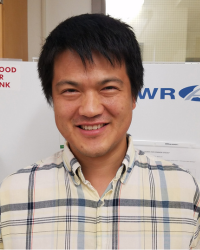
Longhua Guo, Ph.D.
University of Michigan
Project Title: Turning Back Biological Clock: Mechanisms of Age Reversal in a Whole Organism
Grant ID: DP2-AG093207
Dr. Longhua Guo is an Assistant Professor in the Department of Molecular & Integrative Physiology and Institute of Gerontology at the University of Michigan. He received his B.S. in Biology from Peking University and Ph.D. in Biology from University of Utah with Dr. Alejandro Sanchez Alvarado, where he turned sexual planarians into a system for genetics analysis. Dr. Guo continued his training in genetics, genomics and evolution at University of California Los Angeles as a Helen Hay Whitney Fellow with Dr. Leonid Kruglyak, where he took leopard geckos to the lab. His lab now works to understand the interactions between aging and regeneration in two long-lived model systems, the sexual planarians and the leopard geckos. Dr. Guo is also a recipient of junior faculty award from Global Consortium for Reproductive Longevity and Equality, American Federation for Aging Research, and a Pew Biomedical Scholar.
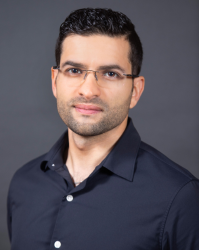
Adam Khalifa, Ph.D.
University of Florida
Project Title: Minimally Invasive and Versatile Next-Generation Implantable Medical Devices: A Leap Towards Precision Therapies and Medicine
Grant ID: DP2-EB037188
Adam Khalifa is an Assistant Professor of Electrical and Computer Engineering at the University of Florida, with an affiliation in the Department of Biomedical Engineering. He earned his B.S. and M.Phil. degrees from the Hong Kong University of Science and Technology in 2011 and 2013, respectively, and his Ph.D. from Johns Hopkins University in 2019. As a T32 NIH fellow, he conducted postdoctoral research at Massachusetts General Hospital and Harvard Medical School. Dr. Khalifa's research program is dedicated to the design, development, and deployment of neurotechnology aimed at better understanding the nervous system, treating diseases, and improving human healthcare.
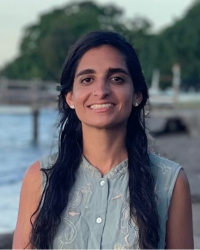
Preeya Khanna, Ph.D.
University of California, Berkeley
Project Title: Untangling the Influence of Distinct Sources of Somatosensory Feedback on the Neural Dynamics of Dexterous Movement Control
Grant ID: DP2-NS142717
Preeya Khanna received her BSc in Bioengineering and Mathematics from the University of Pennsylvania in 2012. She then completed her Ph.D. from UC Berkeley in 2017 where she focused on the dynamics of neural oscillations in control of movement. She underwent postdoc training at UC San Francisco in 2023 where she developed neurotechnology interventions for restoring movement control in preclinical models of stroke. Preeya now leads the Sensorimotor Neural Engineering Lab at UC Berkeley, which focuses on how sensory and motor brain signals interact to control dexterous movement and develops neurotechnology for quantifying, rehabilitating, and restoring sensorimotor function in people with movement impairments.
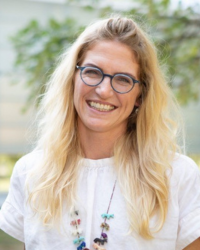
Fenna Krienen, Ph.D.
Princeton University
Project Title: Genomic Recording Systems to Reveal Evolutionary Modifications in Primate Neocortex
Grant ID: DP2-MH140136
Fenna Krienen completed her undergraduate degree at UC Berkeley and her PhD at Harvard University. Her postdoctoral training was with Steve McCarroll at Harvard Medical School and the Broad Institute. Dr. Krienen’s research focuses on the development and diversification of mammalian brain cell types, and particularly how they have been modified along the primate lineage. Her lab aims to develop molecular tools to study and manipulate the cell types and circuits most relevant for understanding human brain function and dysfunction.
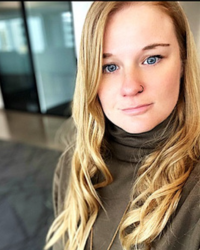
Candace R. Lewis, LAC, Ph.D.
Arizona State University
Project Title: Individually Measured Endophenotypes to Advance Computational Translation in Mental Health
Grant ID: DP2-MH140150
Funded by the National Institute of Mental Health
Dr. Lewis grew up in rural Alaska where she was exposed to high rates of poverty, mental illness, violence, and addictions, driving her commitment to revolutionize mental health understanding, treatment, and policy. To this end, she earned a Masters in Counseling and a PhD in Behavioral Neuroscience, before completing two post-doctoral tenures at The Translational Genomics Research Institute (TGen) on a Bisgrove Fellowship and the University of Zurich Hospital as a Fulbright Scholar. She is currently an Assistant Professor with a joint appointment in the Psychology and Biology Departments at Arizona State University, directing the BEAR Lab (Brain, Epigenetics, & Altered states Research) which focuses on 1) the impact of early life social experiences on epigenetic regulation of gene systems involved in mental health; 2) the relationships between peripheral epigenetics and brain structure, function, and behavior; and 3) the potential of psychedelic-assisted therapy to reduce symptoms through psychological healing and epigenetic alterations. The lab is currently funded through various state and federal grants, including an NICHD K99/R00. Through her research, she aims to acknowledge the harm caused by psychology and genetic sciences on minority groups, increase diversity in training and study cohorts, and change policy to improve mental health for all.
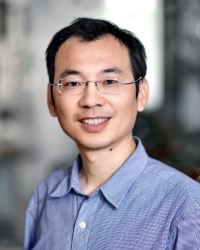
Hongjie Li, Ph.D.
Baylor College of Medicine
Project Title: Systematic Brain-Body Communication and Personalized Aging Trajectories
Grant ID: DP2-AT013275
Hongjie Li is an Assistant Professor and CPRIT Scholar at the Huffington Center on Aging and the Department of Molecular and Human Genetics at Baylor College of Medicine. He received his bachelor’s degree from the University of Science and Technology of China, his PhD from the University of Rochester, and completed his postdoctoral training at Stanford University. He developed several single-cell sequencing platforms in Drosophila, led the Fly Cell Atlas project, and pioneered the application of whole-organism single-cell sequencing as a systems biology approach to studying aging. His current research focuses on further developing and applying single-cell technologies to address fundamental questions about aging. In addition to the New Innovator Award, he has received the Stanford Neuroscience Institute Interdisciplinary Award, the NIH K99/R00 Award, the Cancer Prevention and Research Institute of Texas (CPRIT) Award, the Longevity Impetus Award, the Ted Nash Long Life Foundation Award, and the Welch Foundation Award.
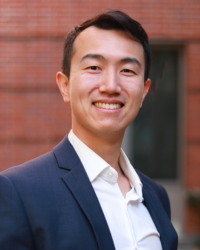
Yuzhang Li, Ph.D.
University of California, Los Angeles
Project Title: Electrified Cryo-EM: A New Tool to Capture Metastable Neuron Structures During an Action Potential
Grant ID: DP2-NS142715
Yuzhang Li is an Assistant Professor in Chemical and Biomolecular Engineering at UCLA. He received his bachelor’s in Chemical Engineering from UC Berkeley and his Ph.D. in Materials Science and Engineering from Stanford University. The long-term goal of the Li group@UCLA is to invent new tools and materials that address important challenges in sustainability and health. Most recently, we are developing innovations to the powerful cryogenic electron microscopy (cryo-EM) tool that will enable the first nanoscale studies of dynamic neuron activity during an action potential stimulated by an external electrical impulse. Insights from this research will have significant impact on informing next-generation neurostimulation treatments for neurological diseases. The Li group's research has been highlighted by news media including Forbes, Popular Mechanics, and ABC7 Bay Area, while also being recognized with several awards, including the DOE Early Career Award, the NSF CAREER Award, and the Packard Fellowship.
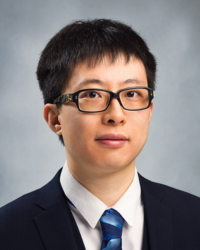
Changyang Linghu, Ph.D.
University of Michigan, Ann Arbor
Project Title: Temporally Scalable Recording of Brain-Wide Single-Cell Physiology
Grant ID: DP2-MH140133
Changyang Linghu is an Assistant Professor of Cell and Developmental Biology at the University of Michigan Medical School and an Affiliate Faculty Member of the Michigan Neuroscience Institute, Single Cell Spatial Analysis Program, and Biomedical Engineering at the University of Michigan, Ann Arbor. He obtained a Bachelor of Engineering from Tsinghua University and received his Ph.D. degree as an MIT Presidential Fellow and McGovern Graduate Fellow and postdoctoral training as a J. Douglas Tan Postdoctoral Fellow, both from the Massachusetts Institute of Technology where he worked with Dr. Ed Boyden on neurotechnology and cell physiology. He is broadly interested in fundamental principles governing the activities and interactions in large networks of molecules and cells that drive brain computation, learning & memory, and aging. To tackle this question of “emergence” in neuroscience, his lab at the University of Michigan is developing and applying novel technologies that enable large-scale, multiplexed monitoring and interrogation of molecular and cellular physiological activities in the living brain. In addition to the NIH Director's New Innovator Award, he is the recipient of MIT Technology Review's Global 35 Innovators Under 35, Glenn Foundation for Medical Research and AFAR Junior Faculty Grant Award, Whitehall Foundation Research Grant, Chan Zuckerberg Initiative Collaborative Pairs Pilot Project Award, among other recognitions.

Yue Lu, Ph.D.
University of Utah
Project Title: Monitoring Human Exposome with Extracellular Vesicle Tricorder
Grant ID: DP2-ES037422
Dr. Yue Lu is an Assistant Professor in the Department of Molecular Pharmaceutics at the University of Utah. She received her B.S. degree in Chemistry from Nanjing University, Ph.D. in Biomedical Engineering from the University of North Carolina at Chapel Hill and North Carolina State University, and completed her postdoctoral fellowship at the Institute for Systems Biology and Caltech. Her research lab (DigiPharma Lab) develops innovative micro-nanotechnologies and multiomics platforms to unravel human complexity and enhance health outcomes.
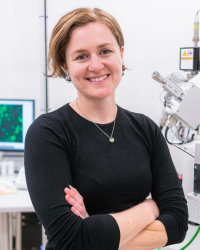
Bronwyn A. Lucas, Ph.D.
University of California Berkeley; Lawrence Berkeley National Lab
Project Title: New Cryo-EM Methods to Visualize Ribosome Heterogeneity at Single Molecule Resolution in Cells
Grant ID: DP2-GM159184
Funded by the National Institute of General Medical Sciences
Bronwyn Lucas completed her undergraduate degree in Molecular Biology at the University of Adelaide, Australia and her Ph.D. at the University of Rochester Medical Center in New York. She trained as a postdoc with Nikolaus Grigorieff at Janelia Research Campus and UMass Medical School. Her lab develops and applies new methods that use cryo-EM to study the structures and spatial organization of biological macromolecules within cells.
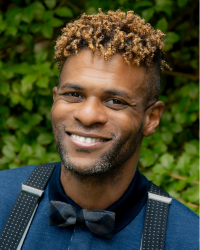
Diyendo Massilani, Ph.D.
Yale School of Medicine
Project Title: Tracing the Evolutionary History Of Human Adaptive Traits Through Ancient DNA
Grant ID: DP2-GM159182
Funded by the National Institute of General Medical Sciences
Diyendo Massilani conducted undergraduate studies at the University of Health Sciences in Gabon (Central Africa) and Sorbonne University in Paris (France). He earned his PhD in Genomics from Paris Cité University (France) and subsequently conducted postdoctoral research at the Max Planck Institute for Evolutionary Anthropology in Leipzig (Germany) under the mentorship of Prof. Svante Pääbo. Dr. Massilani is currently an Assistant Professor of Genetics at Yale School of Medicine, where his lab uses ancient DNA to investigate the evolutionary trajectory of modern and extinct human populations.

Shannon M. Miller, Ph.D.
The Scripps Research Institute
Project Title: Developing a CRISPR-Free Mammalian Recombineering System
Grant ID: DP2-GM159183
Funded by the National Institute of General Medical Sciences
Shannon Miller joined the Department of Chemistry at The Scripps Research Institute as a Scripps Fellow in 2022. She obtained her B.S. in Chemistry from the University of Illinois Urbana-Champaign in 2016 and her Ph.D. from Harvard University in 2022, where she studied under David R. Liu to develop novel CRISPR-Cas9 variants to extend their genomic targeting scope. Her lab at Scripps Research uses protein engineering and directed evolution to develop next-generation technologies for therapeutic genome editing and biomolecule delivery.
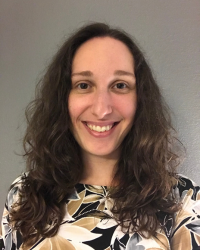
Danielle E. Mor, Ph.D.
Augusta University
Project Title: Towards a Comprehensive Understanding of the Neurotoxic Spread of α-Synuclein from Gut to Brain in Parkinsons Disease
Grant ID: DP2-NS142716
Dr. Danielle Mor is an Assistant Professor in the Department of Neuroscience & Regenerative Medicine at the Medical College of Georgia at Augusta University. She completed her Bachelor’s in Neuroscience & Behavior at Wesleyan University, her Ph.D. in Neuroscience at the University of Pennsylvania Perelman School of Medicine, and her postdoctoral fellowship in the Department of Molecular Biology and Lewis-Sigler Institute of Genomics at Princeton University. Dr. Mor’s lab uses the small nematode worm, C. elegans, to study mechanisms of neurodegeneration in Parkinson’s disease and related neurodegenerative disorders, with a special focus on the role of gut-brain interactions in disease. Her lab employs a combination of RNA-sequencing, imaging, and high-throughput genetic and drug screening approaches to uncover disease mechanisms and discover novel potential therapeutics. Her work has been supported by an Early Investigator Research Award from the Department of Defense, and she recently received the 2023 Outstanding Young Basic Science Faculty Award from the Medical College of Georgia at Augusta University.
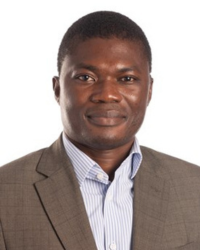
Bolni Marius Nagalo, M.Sc., Ph.D.
University of Arkansas for Medical Sciences
Project Title: Novel Strategies to Enhance Drug Delivery and Tumor Immunogenicity in Pancreatic Cancer
Grant ID: DP2-CA301099
Bolni Marius Nagalo, MSc, Ph.D., is an Assistant Professor of Pathology at the University of Arkansas for Medical Sciences and co-leader of the Cancer Therapeutics program at the Winthrop P. Rockefeller Cancer Institute. He earned his bachelor's, master's, and Ph.D. from the University of Ouaga I Joseph Ki-Zerbo in Burkina Faso. Dr. Nagalo completed a postdoctoral fellowship at the Mayo Clinic and later joined their faculty in Arizona. His laboratory focuses on drug development, particularly virus-directed evolution to generate selective oncolytic viruses and gene therapy vectors for hepatobiliary and pancreatic cancers. Dr. Nagalo has received several awards, including the NCI K01 Career Development Award, NCI EIAP Scholar recognition, AACR Career Development Award, Wellcome Trust Mobility Award, and the UAMS Cancer Institute Director's Spotlight.
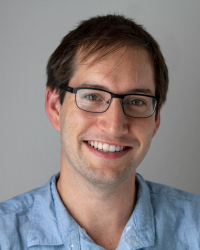
Ian Antón Oldenburg, Ph.D.
Rutgers University
Project Title: Editing Population Codes For Action
Grant ID: DP2-MH140135
Ian Antón Oldenburg is an Assistant Professor of Neuroscience and Cell Biology and a Resident Faculty at the Center for Advanced Biotechnology and Medicine at Rutgers University. Previously, he trained with Dr. Bernardo Sabatini at Harvard University, studying interactions between the Basal Ganglia and cortex, and did a postdoc with Dr. Hillel Adesnik at UC Berkeley, developing new optical approaches to manipulate neural activity with high precision. The Oldenburg lab uses these Multiphoton Holographic Optogenetic approaches to study how neurons interact and how neural activity gives rise to movements. In addition to the NIH Director’s New Innovator Award, the Oldenburg Lab is supported by a Pathway to Independence award from NEI, the Whitehall Foundation, and the Searle Scholars Program.
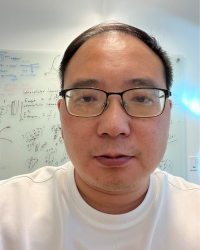
Xiaojie Qiu, Ph.D.
Stanford University
Project Title: Towards Foundational 3D In Silico Models of Whole Mouse Embryogenesis
Grant ID: DP2-HG014282
Dr. Xiaojie Qiu is an Assistant Professor at the Department of Genetics, the BASE program, and the Department of Computer Science at Stanford. He worked with Dr. Cole Trapnell at the University of Washington during his PhD to develop Monocle 2 and 3 for pseudotemporal trajectory analysis of scRNA-seq data. During his post-doc, he worked with Dr. Jonathan Weissman initially at UCSF and then Whitehead Institute and MIT to develop Dynamo to reconstruct RNA velocity vector field and to make reprogramming and in silico perturbation predictions with metabolic labeling enabled single-cell RNA-seq. He is currently leading the Predictive Biology Lab at Stanford, focusing on predictive modeling of single cells through a unique synthesis of genomics, machine learning and systems biology.

Vidhya Rangaraju, Ph.D.
Max Planck Florida Institute for Neuroscience
Project Title: Identifying Mitochondrial Mechanisms Driving Learning and Memory
Grant ID: DP2-MH140148
Funded by the National Institute of Mental Health
Rangaraju completed her Ph.D. in the lab of Dr. Timothy Ryan at Weill Cornell Medicine in New York, where she developed a novel optical reporter of synaptic ATP to measure dynamic changes in ATP concentrations and elucidated the link between neuronal activity and ATP synthesis. She was an EMBO and Marie Curie Postdoctoral Fellow in the group of Dr. Erin Schuman at the Max Planck Institute for Brain Research in Germany, where she uncovered the presence of local mitochondrial compartments of energy that fuel local translation during synaptic plasticity. Dr. Rangaraju's group at the Max Planck Florida Institute for Neuroscience investigates the energy use and supply of biological processes in neurons. She is the recipient of numerous awards, including the Vincent du Vigneaud Award of Excellence, Lindau Nobel Laureate Meeting Award, the MPIBR Scientific Discovery of the Year Award, the SfN Peter and Patricia Gruber International Research Award, the CZI Ben Barres Early Career Acceleration Award, and the SfN Janett Rosenberg Trubatch Career Development Award.
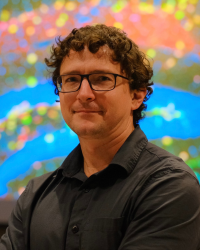
Richard C. Sando, Ph.D.
Vanderbilt University
Project Title: Illuminating the Molecular Logic of Mammalian Synaptic Circuit Assembly
Grant ID: DP2-MH140134
Richard Sando studies how synapses form in the mammalian brain, and how neural circuits assemble from a vast array of diverse synaptic connections. He completed his postdoctoral training at Stanford University with Dr. Thomas Südhof and his Ph.D. at Scripps Research Institute in La Jolla, California, under the mentorship of Dr. Anton Maximov. He was an undergraduate at Rider University, where he worked with Dr. Phillip Lowrey on the molecular mechanisms of circadian rhythms.
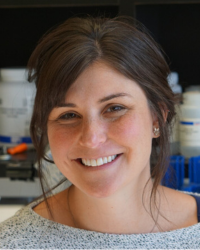
Jennifer L. Small-Saunders, M.D., Ph.D.
Columbia University Irving Medical Center
Project Title: Epigenetic Drivers of Quiescence in Artemisinin-Resistant Plasmodium falciparum Malaria
Grant ID: DP2-AI190432
Jennifer Small-Saunders is an Infectious Diseases physician-scientist and Assistant Professor of Medicine at the Columbia University Vagelos College of Physicians & Surgeons. She received her BS from Georgetown University and her MD and PhD degrees from the Weill Cornell/Rockefeller/Sloan Kettering Tri-Institutional MD-PhD program, followed by Internal Medicine residency and Infectious Diseases fellowship at Columbia University Irving Medical Center. Her laboratory uses mass-spectrometry-based techniques and genetic knockdowns to study epigenetic and epitranscriptomic mechanisms of antimalarial drug resistance and stress responses in Plasmodium falciparum malaria parasites. She has been awarded a Doris Duke Physician Scientist Fellowship, an NIH/NIAID K08 Career Development Award, a Louis V. Gerstner, Jr. Scholar Award and a 2023 American Society for Clinical Investigation Young Physician Scientist Award. In addition to her laboratory research, she continues to be a practicing Infectious Diseases physician.
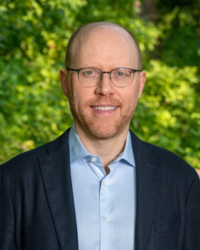
Derek Southwell, M.D., Ph.D.
Duke University
Project Title: Exploring Cortical Inhibitory Circuit Design in the Human Brain
Grant ID: DP2-MH140149
Funded by the National Institute of Mental Health
Derek Southwell is an Assistant Professor of Neurosurgery and a Faculty Member in the Neurobiology Training Program at Duke University. Dr. Southwell graduated from the Massachusetts Institute of Technology in 2001 (B.S., Biology) and then completed his M.D., Ph.D., and neurosurgery residency training at the University of California, San Francisco. His thesis and post-doctoral research in neuroscience, which he conducted with Arturo Alvarez Buylla and Vikaas Sohal, respectively, investigated the postnatal development and cellular transplantation of GABAergic interneurons in the mouse cerebral cortex. As a functional neurosurgeon and Surgical Director of the Duke Comprehensive Epilepsy Center, Dr. Southwell treats patients with epilepsy, movement disorders, and neuropsychiatric conditions, and he leads clinical investigations of novel brain therapies, including first-in-human studies of interneuron transplantation. His research lab uses live human tissue models to study the functional organization and therapeutic modification of human brain circuits, ex vivo. Dr. Southwell has received the NINDS Neurosurgeon Research Career Development Program K12 Award, the Klingenstein-Simons Fellowship Award in Neuroscience, the Whitehall Foundation Research Grant, and the Academy Award from the American Academy of Neurological Surgery.

Wan-Ling Tseng, Ph.D.
Yale School of Medicine
Project Title: Multi-Level Mechanisms and Predictors of Irritability: An Innovative Approach Bridging Laboratory and Real-World Measures
Grant ID: DP2-MH140132
Dr. Wan-Ling Tseng is an Assistant Professor at the Yale Child Study Center, Yale School of Medicine. Dr. Tseng received her Ph.D. in Developmental Psychology from the Institute of Child Development at the University of Minnesota and completed her postdoctoral fellowship in the Section on Mood Dysregulation and Neuroscience at the Intramural Research Program of the National Institute of Mental Health. Dr. Tseng is committed to a long-term career as a developmental affective neuroscientist conducting innovative and collaborative research focused on irritability and related symptoms. Her research program aims to delineate mechanisms and predictors of chronic irritability across multiple levels of analysis from neural circuits, physiology, behaviors, social experiences (e.g., peer interactions), to familial and environmental factors and across development. In addition to the New Innovator Award, Dr. Tseng’s work has been recognized by other prestigious awards including the NIH Pathway to Independence Award, Society of Biological Psychiatry Travel Award, NIH Fellows Award for Research Excellence, NIMH OFT Trainee Travel Award, American College of Neuropsychopharmacology Travel Award, Doris Duke Fund to Retain Clinical Scientists, and Charles H. Hood Foundation Child Health Research Award.
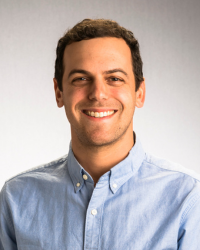
Evan Weber, Ph.D.
University of Pennsylvania Perelman School of Medicine; Children's Hospital of Philadelphia
Project Title: Enhancing CAR T Cell Fitness Using Novel Epigenetic Reprogramming Factors
Grant ID: DP2-CA301078
Evan Weber is an Assistant Professor of Pediatrics at the University of Pennsylvania School of Medicine and the Children's Hospital of Philadelphia. He received a B.S. from the University of Michigan and a PhD in Immunology from Northwestern University Feinberg School of Medicine. His research is focused on overcoming major barriers to CAR T cell therapies for cancer by developing cell engineering-based approaches to reprogram human CAR T cells with enhanced fitness and durability. Using an array of gene-editing, bioengineering, and multomics techniques, Dr. Weber's lab is uncovering molecular programs that drive human CAR T cell dysfunction and manipulating transcriptional and epigenetic pathways that redirect CAR T cells towards more therapeutic cell states. His research program promises to generate new insights into fundamental human T cell biology and leverage them to improve CAR T cell efficacy in cancer patients.
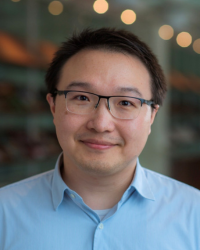
Dian Yang, Ph.D.
Columbia University
Project Title: Towards a Comprehensive, Spatiotemporal Roadmap of Cancer Metastasis
Grant ID: DP2-CA301079
Dian Yang is an Assistant Professor in the Department of Molecular Pharmacology & Therapeutics and the Department of Systems Biology at Columbia University. He completed his Ph.D. in cancer biology at Stanford University in the laboratories of Drs. Monte Winslow and Julien Sage studying the mechanisms of cancer metastasis. As a Damon Runyon Postdoctoral Fellow in Dr. Jonathan Weissman’s lab at the Whitehead Institute, Dian developed a CRISPR-based lineage tracing mouse model to study lung cancer evolution. The Yang lab focuses on understanding the fundamental principles of tumor evolution and plasticity by integrating CRISPR technologies, single cell genomics, in vivo cancer modeling and phylogenetic analysis.
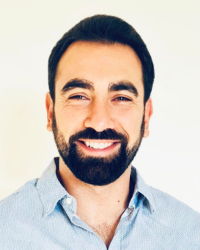
Mark Yarmarkovich, Ph.D.
New York University School of Medicine
Project Title: Expanding CAR T Cell Applications Through High-Throughput Forward- and Reverse Immune Engineering
Grant ID: DP2-CA301080
Dr. Mark Yarmarkovich leads a lab focused on developing the next generation of cancer immunotherapies to unleash the potent potential of these therapies for all cancer patients, leveraging multidisciplinary expertise across protein chemistry, antibody engineering, immunology and computational biology. He led the discovery of novel tumor antigens across multiple tumor types and pioneered a new class of peptide-centric (PC)-CAR T cells, enabling the targeting of non-immunogenic tumor antigens presented across multiple HLA allotypes. The first PC-CARs potently eradicate aggressive tumors in preclinical models and are entering clinical trials in 2024/5. He spent 5 years working at Genentech, received his PhD from the University of Pennsylvania, completed his postdoc at the Children's Hospital of Philadelphia, and has founded a biotech company focused on translating PC-CARs to pediatric cancer patients.
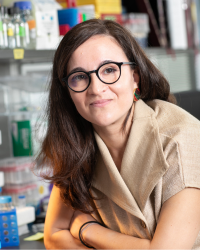
Sara Zaccara, Ph.D.
Columbia University
Project Title: Programmable Depletion and Rescue Platform to Screen Dynamic Regulatory Events During Cellular Differentiation.
Grant ID: DP2-HD118273
Sara Zaccara is an Assistant Professor of Systems Biology at Columbia University and a Member of the Herbert Irving Comprehensive Cancer Center. She obtained her Ph.D. in molecular biotechnology from Trento University and performed her postdoctoral training with Samie Jaffrey at Weill Cornell Medicine, where she made significant contributions to studying mechanisms of mRNA regulation. She overturned major dogma in the m6A modification field, providing a definitive explanation for the function of m6A in cells. Her lab's research focuses on unraveling the intricacies of mRNA regulatory mechanisms under normal and disease conditions, utilizing cutting-edge sequencing technologies and advanced computational data analyses.
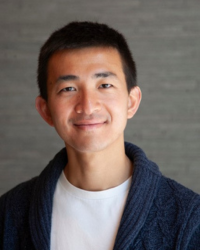
Ziyang Zhang, Ph.D.
University of California, Berkeley
Project Title: Direct Chemical Targeting of MHC Proteins for the Treatment of Cancer and Autoimmune Diseases
Grant ID: DP2-DK143366
Ziyang Zhang is an Assistant Professor of Chemistry and Chemical Biology at the University of California, Berkeley. He received his B.S degree in Chemistry from Peking University and completed his PhD training on organic synthesis with Dr. Andrew Myers at Harvard University. Prior to joining the faculty at Berkeley, he was a Damon Runyon postdoctoral fellow with Dr. Kevan Shokat at UCSF. His lab’s research focuses on developing chemical tools to tweak immune signaling in the context of cancer and autoimmune diseases.



